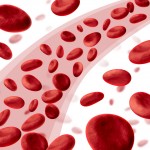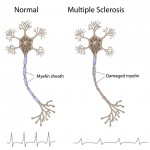 Autistic children under the age of 6 tend to be more anemic than their older counterparts. This may have something to do malabsorption and a less-mature gastrointestinal tract. Read more…
Autistic children under the age of 6 tend to be more anemic than their older counterparts. This may have something to do malabsorption and a less-mature gastrointestinal tract. Read more…
SOURCE: Questioning Answers
Almost Autism:Recovery for Kids, Support & Community for Moms
 Autistic children under the age of 6 tend to be more anemic than their older counterparts. This may have something to do malabsorption and a less-mature gastrointestinal tract. Read more…
Autistic children under the age of 6 tend to be more anemic than their older counterparts. This may have something to do malabsorption and a less-mature gastrointestinal tract. Read more…
SOURCE: Questioning Answers
 Anyone who’s spent time with a cranky child – or adult – after they’ve eaten too much candy can tell you: food definitely affects your mood.
Anyone who’s spent time with a cranky child – or adult – after they’ve eaten too much candy can tell you: food definitely affects your mood.
Though we often crave sweet “comfort foods” when we’re feeling down, the truth is that sugar usually makes things worse. Spikes and crashes in blood glucose levels leave us feeling irritable, anxious, and tired a few short hours after we indulge. (New research suggests that unhealthy eating habits may even diminish your mental acuity and decision-making abilities.)
Cutting down on refined sugar is obvious. But what if there were foods that could actually boost your psychological wellbeing in the long run? According to a new study from the University of Warwick and Dartmouth College, the answer is surprisingly simple: look no farther than the produce section at your grocery store or farmers’ market.
Researchers analyzed the eating habits of about 80,000 people living in the UK and found that the more fruits and vegetables people ate, the happier they were. Controlling for other variables (such as the remainder of subjects’ diets and a range of demographic, economic, and social factors) researchers found that emotional health rose with fruit and vegetable consumption in a dose-response pattern – each additional portion of fruits and vegetables correlated with an increase in life satisfaction. The sweet spot, so to speak, was about seven servings a day.
Even more surprising was how huge the improvements were: eating more fruit and vegetables corresponded with an increase in .25 to .33 life-satisfaction points. If that sounds small to you, here’s some perspective: being unemployed produced a loss of .9 life-satisfaction points. In other words, eating lots of fruits and vegetables affects your mental wellbeing one-third as much as losing your job!
It’s still unclear exactly how this works, and correlation definitely doesn’t imply causation. But the physical benefits of eating fruits and vegetables are so overwhelmingly conclusive that this study should only act as further encouragement to fuel up on produce throughout the day. Your mood may thank you!
Have you noticed that food affects your mood? Are there any specific foods that you proactively consume or avoid?
 This is one of my favorite recovery stories, as it shows how powerful food can be in recovering from an extremely debilitating chronic illness like multiple sclerosis.
This is one of my favorite recovery stories, as it shows how powerful food can be in recovering from an extremely debilitating chronic illness like multiple sclerosis.
 A gluten-free diet may be all that’s needed to eliminate signs and symptoms of type I diabetes.
A gluten-free diet may be all that’s needed to eliminate signs and symptoms of type I diabetes.
“An autoimmune reaction can occur in the presence of gluten, as well as other proteins that the immune system reads as gluten.
Each person with an autoimmune disorder will react uniquely to different foods.” Read more…
SOURCE: The Body Ecology Diet
 Restoring your adrenal health can improve your mood, metabolism, and immune function. “Common warning signs to look out for include:
Restoring your adrenal health can improve your mood, metabolism, and immune function. “Common warning signs to look out for include:
SOURCE: The Body Ecology Diet
 When I was a kid, you couldn’t get me to come inside. I was outside playing in the woods behind our house, climbing trees, building forts and making “sukiyaki” out of worms and dirt. And I HATED taking a bath.
When I was a kid, you couldn’t get me to come inside. I was outside playing in the woods behind our house, climbing trees, building forts and making “sukiyaki” out of worms and dirt. And I HATED taking a bath.
My mom used to call me “Dirt-It” and tell me that potatoes would grow behind my ears because I never washed there.
These days, with the lure of video games and smart tablets, it’s hard to get my kids to go outside unless I go with them on a hike. And my kids aren’t the exception.
Unfortunately, this trend, coupled with the fact that our houses may be TOO clean, may be contributing to growing rates of allergies, asthma, autism, ADHD and autoimmune diseases; this is known as the “hygiene hypothesis”.
“This theory believes that a lack of early childhood exposure to germs increases the chance for allergic diseases. Over-sanitization might suppress the natural development of the immune system”, concludes this study in Science Daily, which found that greater rates of peanut allergy are found in families with higher economic status.
In addition, scientists have recently discovered that certain microbes in the dirt act as natural antidepressants.
This blog post from Gardening Know How says that “Mycobacterium vaccae is the substance under study and has indeed been found to mirror the effect on neurons that drugs like Prozac provide. The bacterium is found in soil and may stimulate serotonin production, which makes you relaxed and happier.”
So there. I really was happy to be playing in the dirt!
 Between 5% and 8% of children and young adults in the world have ADHD. Read more…
Between 5% and 8% of children and young adults in the world have ADHD. Read more…
SOURCE: Questioning Answers
 Having a son with a developmental delay was very hard on me. He didn’t walk until he was 20 months old. This was extremely hard for me because he didn’t walk until 3 weeks before his little brother was born, and I was having to carry him everywhere.
Having a son with a developmental delay was very hard on me. He didn’t walk until he was 20 months old. This was extremely hard for me because he didn’t walk until 3 weeks before his little brother was born, and I was having to carry him everywhere.
I suppose the bright side is that he didn’t weigh a whole lot, given that he was also a failure-to-thrive baby.
His sensory processing disorder turned him into a barnacle. I felt as if he were permanently physically attached to me. It wasn’t so bad when he was younger, but after his brother was born, it was extremely difficult to deal with two small, crying children at the same time, who both wanted to be picked up and held at the same time.
And then when our nanny left to have her own baby when my older son had just turned 3, his sensory processing and anxiety went full tilt. He was used to having someone always there immediately to meet his needs; now he had to share me with his baby brother. [Read more…]
 Prenatal exposure to cadmium, even at low levels, can have long-lasting effects on children’s IQ. Cadmium is found in cheap jewelry, NiCad batteries, plastics, car exhaust and fertilizers. Read more…
Prenatal exposure to cadmium, even at low levels, can have long-lasting effects on children’s IQ. Cadmium is found in cheap jewelry, NiCad batteries, plastics, car exhaust and fertilizers. Read more…
SOURCE: Environmental Health News
 Babies given Tylenol have a greater risk of developing asthma in later years. Researchers found that the more acetaminophen kids were given as infants, the more likely they were to develop asthma-like symptoms in early childhood. Read more…
Babies given Tylenol have a greater risk of developing asthma in later years. Researchers found that the more acetaminophen kids were given as infants, the more likely they were to develop asthma-like symptoms in early childhood. Read more…
SOURCE: Reuters
I’m a Certified Holistic Health Counselor who helps parents recover their children from symptoms of:
Almost autism
Sensory Processing Disorder
Autism
ADHD
PANS
PANDAS
OCD
Lyme disease
I have recovered my sons’ health with... [Read More …]
Copyright © 2025 · Streamline Child Theme on Genesis Framework · WordPress · Log in